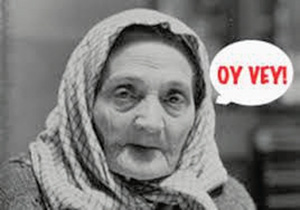
Goodwill, good-looking, goodness, scattergood and goodbye. The word “good” is all around us but among Jews the word “good” is most famously half of the weekly “Good Shabbos” greeting and salutation. You do not have to be a good egg to say “Good Shabbos” or a good sport to respond in kind. Anyone can say “Good Shabbos” and everyone should mean it.
Many scholars believe that the phrase “Good Shabbos” derives from the Yiddish “Gut Shabbes” but that does not explain the usage of the word “good.” The Talmud does provide some general greeting guidance: “Be the first to greet every person….” (Pirkei Avot 4:16) It also states: “Make your Torah fixed, say little and do much, and receive every person with a pleasant countenance.” (Pirkei Avot 1) The Talmud also notes: “[T]he Gemara mentions that they said about Rabban Yoḥanan ben Zakkai that no one ever preceded him in issuing a greeting, not even a non-Jew in the marketplace, as Rabban Yoḥanan would always greet him first.” (Berakchot 17a) The Shulchan Aruch goes one step further by noting that “one should not speak words of Shabbos like the words of a weekday.” (Shulchan Aruch 307:5) Thus, on Shabbat, instead of greeting someone with “Good Morning,” “Good Afternoon” or “Good Evening,” one should greet them with “Good Shabbos” or another special greeting.
It should be noted that the word “good” has special significance in the Torah. In Beresehit (Genesis), the word “good” is used repeatedly throughout the creation story to describe each miraculous development, thus elevating the word “good” to otherworldly levels. This also might explain why Jews on Rosh Hashanah wish each other a “Shana Tova, ” i.e., a good year, or why on other holidays they greet one another with “Gut Yontif,” which is sort of repetitive because it mean Good Yom Tov or Good Good Day.
In view of the foregoing, it is somewhat strange how many negative expressions ironically contain the word “good” including good riddance, good grief, good-for-nothing and goody-two-shoes. There also are expressions that contain the word “good” but express an unfortunate sentiment like “all good things must come to an end,” “get the goods on someone” and “good as dead.”
Some Jews, as an alternative to saying “Good Shabbos,” will greet others with “Shabbat Shalom,” i.e., Sabbath of Peace.” For families with many young children, it might be more appropriate to wish a Sabbath of Peace and Quiet. For those who are one step away from finishing a puzzle, it might be appropriate to wish a Sabbath of Piece. For artists who, prior to Shabbos, just completed their greatest creation, it may be appropriate to wish a Sabbath of Pièce de Rèsistance.
Sometimes it is hard to figure out when to extend a “Good Shabbos” greeting, especially when others are approaching from a distance. How close should you be before conveying a “Good Shabbos” greeting? If you can are see someone only through a pair of binoculars, you are too far way. If you can see whether their pupils are dilated, then you might be too close.
One of the most awkward “Good Shabbos” moments occurs when you see your rabbi mid-week but, by rote and association, you innocently blurt out “Good Shabbos” by mistake Some rabbis may politely correct you or just nod, but a few will mercifully play along to avoid embarrassing you. That is risky, however, because someone else might overhear the rabbi erroneously replying “Good Shabbos” and wrongly conclude that the rabbi is totally discombobulated. There are other things, however, that can make a rabbi appear extremely confused like if the rabbi places a lulav and etrog on a Seder plate, brings a surfboard to the mikvah or encourages gossip during davening.
Final thought: A “Good Shabbos” greeting can be useful if you have forgotten a person’s name or if you do not have time for chit chat. Just exclaim “Good Shabbos” and keep walking with the comfort that you have complied with Talmudic regulations. Running along in this fashion is particularly appropriate if you are on your way to synagogue: “[W]ith regard to entering a synagogue, it is a mitzvah to run and one is permitted to rush and take large strides… One who eagerly enters a synagogue displays his enthusiasm to follow the path of Hashem.” (Berakhot 6b) In certain instances, however, merely saying “Good Shabbos” without stopping to talk may not suffice, like if you figuratively bump into an old friend and they really want to catch up with you, or if you literally bump into an old friend (bam!) and, as a result, they require immediate medical attention.
By Jon Kranz













